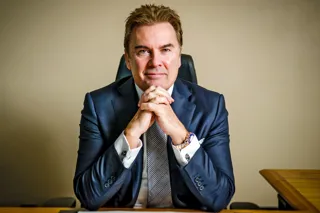The opportunity to boost finance sales continues to exist as motorists discover the possibilities of smartphone-style monthly payment plans and a regular upgrade, according to UHY Hacker Young.
The past five years has seen the amount of money being advanced in the UK to finance car purchases double to £30.8bn in lease finance in 2015-16, up from £13.4bn in 2010-11, according to the FLA
And UHY Hacker Young said that the value of new leases provided to customers for new cars has risen 15% since last year - from £15.2bn to £17.6bn - with he value of new leases for used cars has increased by 13% since last year from £11.6bn to £13.2bn.
Paul Daly, partner at UHY Hacker Young claims that a critical mass has yet to be reached, however, leaving car dealers with further opportunity still on the cards.
Daly said: “There is still further opportunity for franchise dealerships to take advantage of this demand for finance as customers gradually convert from the traditional payment model – which is highlighted by growth in the US market.
“Consumers are very receptive to the idea of being able to upgrade to a new car regularly rather than stick with an aging model. Residual value management by the manufacturers will play a key role in ensuring the model is robust and payments remain affordable for the consumers”
UHY Hacker Young acknowledged that car ownership is becoming more similar to the mobile phone purchasing model, with customers opting for monthly payment plans in the form of PCP and PCH contracts.
It said that low interest rates have further encouraged the use of car finance to rise, as people are no longer put off by the cost that their borrowing may incur.
In the USA, the overall auto-finance market has grown to £1.1 trillion and is now attracting peer-to-peer lenders.
Daly added: “Monthly payment models have allowed both the new and used car market to recover strongly since the recession as the demand for the latest models has resulted in the higher turnover of cars. Low cost finance will be needed if sales are to remain robust through the period of Brexit uncertainty.”



















Login to comment
Comments
No comments have been made yet.